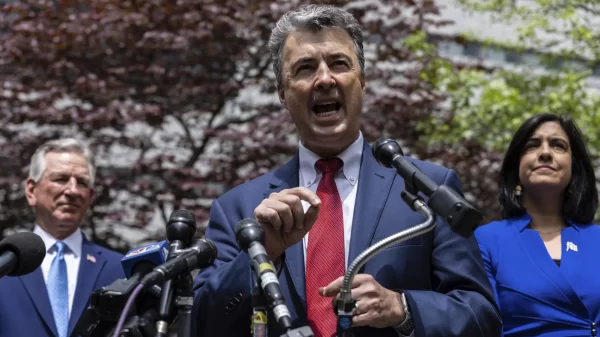By Josh Moon
Alabama Political Reporter
Gov. Kay Ivey was fairly clear when she put together the objectives for the Opioid Overdose and Addiction Council.
But setting objectives and meeting them are two different things.
The Council, co-chaired by Alabama Attorney General Steve Marshall, Mental Health commissioner Lynn Beshear and acting State Health Officer Dr. Scott Harris, got started on Tuesday, as members came together for the first time in an effort to examine the opioid problem and develop ideas to combat it.
“It is the biggest public health crisis in the United States today,” Harris said during his opening remarks. “We are not alone with this problem.”
With a council that includes so many state leaders and interested parties – there are 35 members on the council – introductions took most of the time. But there was a tone set.
“The thing we need to remember is that opioid addiction is a disease of the brain,” Beshear said. “That’s scary to us. We don’t react the same way to diseases of the brain as we do to things like cancer. But we have to remember that and treat it as we would other diseases.”
Within the introductions, as council members spoke of what they hoped to get out of the meetings, there seemed to be a willingness to think differently and avoid the mistakes of the past.
“When I started it was crack was the worst thing we had ever seen,” said Brian McVeigh, director of the Alabama District Attorneys Association. “Then it was meth is the worst thing in the world. Now it’s opioids. And it will be something else 10 years from now if we don’t figure out a way to do this better.”
That’s one of the primary objectives of the Council – to find a collaborative, better way. In her executive order establishing the Council, Ivey asked that it examine the problem, possible solutions being tried elsewhere and then present ideas to combat the issue in Alabama. The group has until Dec. 31 to complete its work.
“I feel confident we can meet that deadline,” Marshall said.
The Council next meets on Oct. 24.



















































